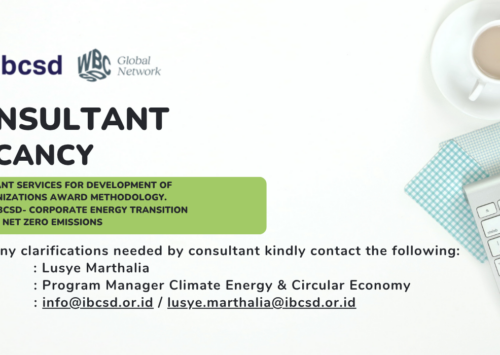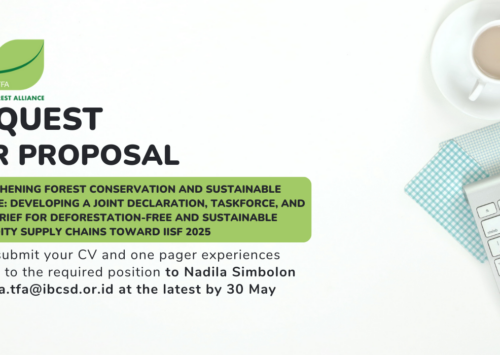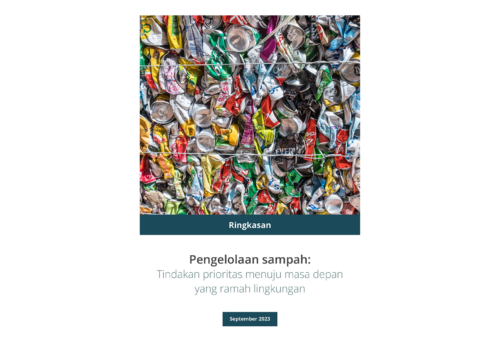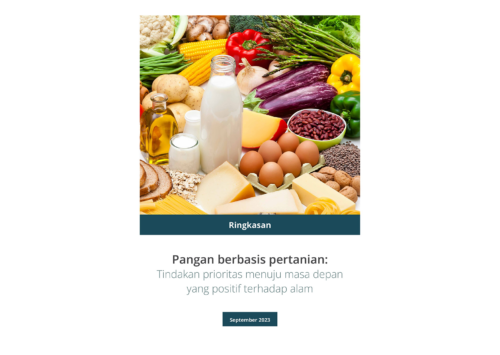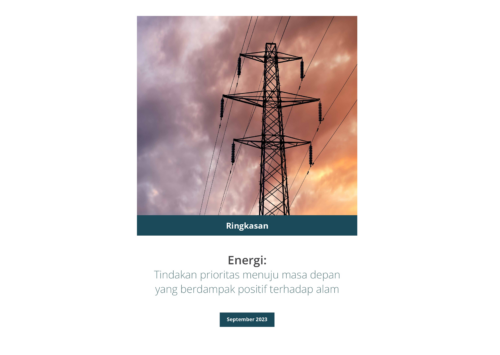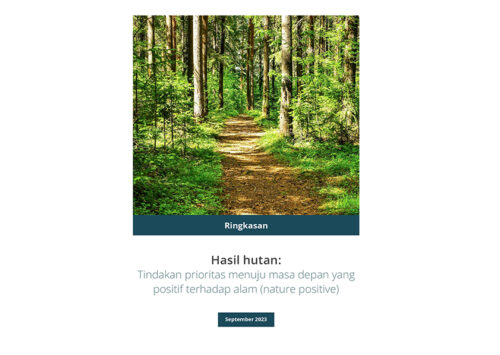Other data from the UNEP Food Waste Index in 2021 shows that the amount of food waste globally reaches 931 million tons in 2019. Ironically, the Covid-19 pandemic has increased the number of malnutrition between 83-123 million people. And 6.7 million of them are children suffering from acute malnutrition.
On the other hand, the Indonesian government remains optimistic about reducing waste with a target of 30% and 70% by 2025, including food waste. In fact, reducing food waste is one of the priorities in the 2020-2024 RPJMN, as conveyed by representatives of Medrilzam, Director of the Environment, BAPPENAS. According to representatives of Anang Nugroho, Director of Food and Agriculture of BAPPENAS, in more detail, horticultural products, especially vegetables, are the largest contributor to food waste products in Indonesia, which must receive attention.
Seeing this, IBCSD together with WRAP introduced an initiative based on voluntary agreement, where businesses can participate in the commitment and start calculating and analyzing their respective food losses and losses. Indeed, one of the right solutions in dealing with the problem of food waste is to involve the business sector. Based on the presentation in the discussion entitled “Business Actions to Overcome Food Shrinkage and Food Waste in Indonesia” held by the Indonesia Business Council for Sustainable Development (IBCSD) on April 29, 2021, only 11.5% of food waste is produced in the consumption process in most developing countries. . Meanwhile, the production process contributed 23.5% of food loss and waste, then post-harvest storage contributed 24.4%, the manufacturing process 20.3%, and distribution 20.3%. This means that business has a very big role in dealing with this problem.
“IBCSD intends to introduce voluntary agreement-based initiatives to overcome the problem of food loss and waste in Indonesia. We believe that this issue has become the concern of many parties. So that this is not a reinventing the wheel program, but a support and enhancement of existing initiatives globally and nationally,” said Yono Reksoprodjo, Executive Committee of IBCSD.
Interestingly, mapping and reducing waste loss and waste in a business chain will not only benefit the environment and help achieve government targets. WRAP’s International Partnership Manager, Michael Jones, provides a clear example of how UK businesses implementing reduced food losses and waste at their company have succeeded in reducing previously invisible costs and providing significant benefits to the business. Another good news is that business people who are interested in this initiative can join the voluntary agreement initiated by IBCSD.
